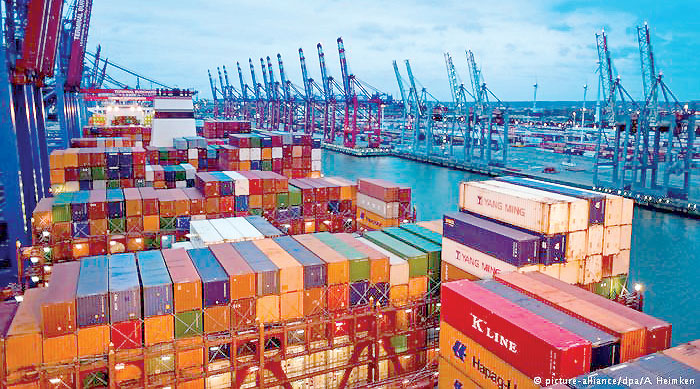

Berlin: German industry warned of the threat posed to the nation’s new burgeoning business ties with Iran after US President Donald Trump threw into doubt the future of the Tehran nuclear deal.
Companies from Germany — Europe’s biggest economy — were among the trailblazers into Iran following the 2015 landmark deal with Tehran. Within days of the deal that was brokered by Germany and five other world powers, then economic minister Sigmar Gabriel led a delegation of industry leaders to Tehran.
Now German business leaders fear that Trump’s decision to decline to certify the agreement could hit the country’s exports to Iran and undermine global business confidence, amid worries that the US Congress could reimpose nuclear sanctions on Tehran.
A push by Washington to reinstate punitive measures against Iran would represent “a nasty shock to the renewed vigorous trading relations,” said Volker Treier, who heads up the external economic relations of the German Chamber of Industry and Commerce (DIHK).
“The return of sanctions would represent a major threat to the reintegration of the country into the world community,” said Dieter Kempf, who heads up the powerful Federation of German Industry (BDI), which warmly welcomed the nuclear deal two years ago.
German exports to Iran raced ahead by 25 per cent in 2016 compared with 2015 after the nuclear deal as Tehran sought to reactivate Germany’s traditional business role in the country as a supplier of infrastructure goods such as machinery and mechanical equipment.
In the first quarter this year, German exports to Iran surged by 40 per cent compared with the same period last year, helped by strong demand in Iran for motor vehicles from Germany.
Germany’s Volkswagen — Europe’s biggest carmaker — announced in July that it was preparing to return its brand cars to Iranian streets after an absence of more than 17 years following the end of sanctions against the country.
Trade between Germany and Iran totalled 2.4 billion euros in 2015 with business in Europe’s biggest economy having at one point set a target for Iranian trading volumes of 10 billion euros in the coming years.
However, trade between the two nations has been slower than expected due to the reluctance of many major banks to play a role in projects and business deals with Iran as some US sanctions remained in place even after the nuclear deal came into force.
In addition, many international companies are concerned about doing business in Iran due to worries that Iranian banks fall below global standards. As a result, ING bank economist Carsten Brzeski believes that the implications of Trump’s decision might have wider political than economic implications.
“Obviously, German exports to Iran have started from a very low level and they still represent only a fraction of total exports,” Brzeski said.
“This means that economically the damage will be limited,” he said.”Politically, however, the damage should be much larger.
“Not only could it create new uncertainty in the entire region, it could also potentially create a new rift between the US and Europe, representing another step towards a fragmented western world,” he said.
— dpa
Oman Observer is now on the WhatsApp channel. Click here



